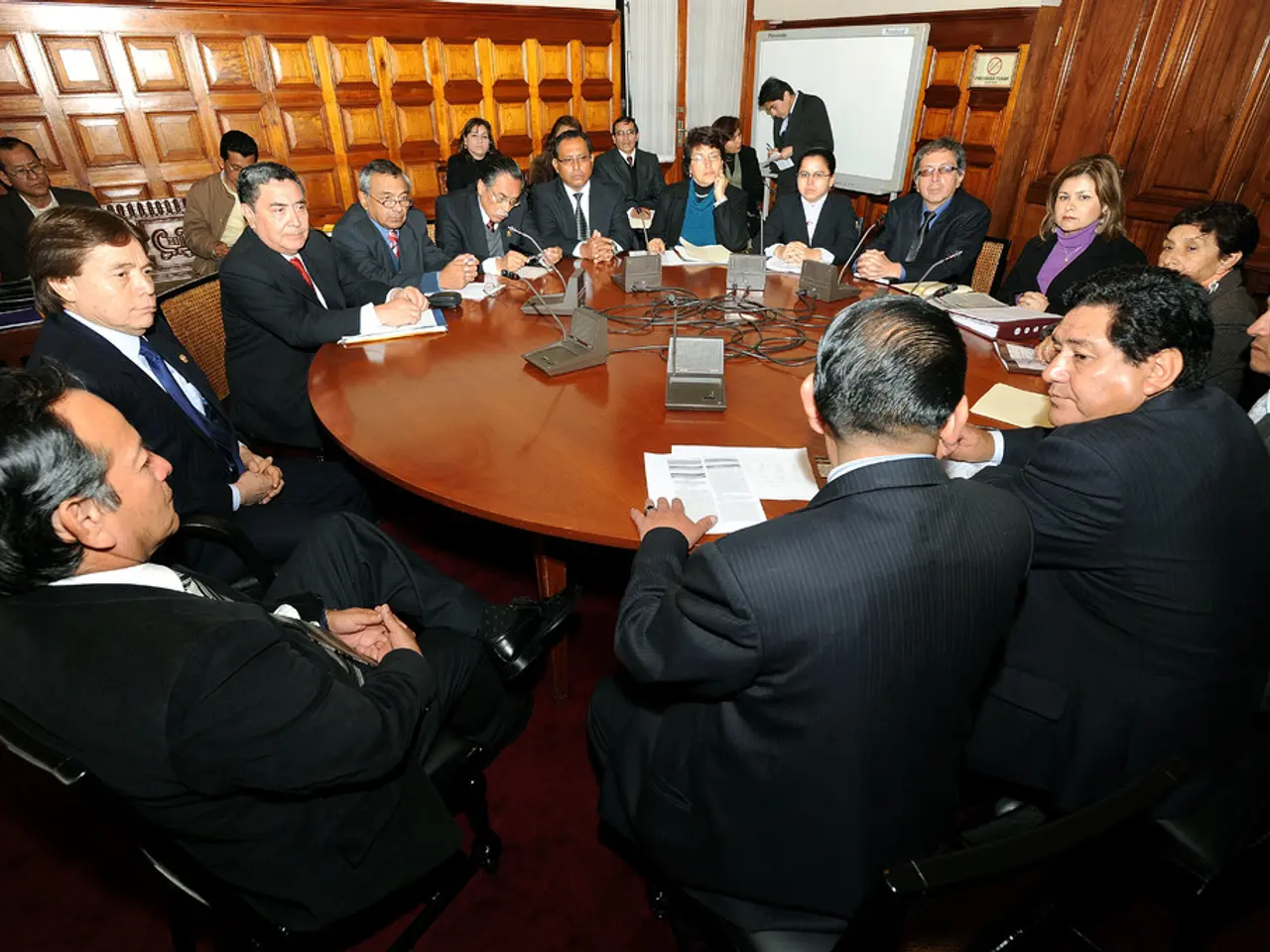Appointment of a judge under the constitution
The election of three judges for the Federal Constitutional Court in Germany has hit a roadblock, with the process currently on hold due to resistance within the Union faction against SPD's candidate, Frauke Brosius-Gersdorf.
Brandenburg's Minister President Dietmar Woidke (SPD) has proposed a complete replacement of the current candidates, suggesting that all parties involved should withdraw and the procedure should be reset by the factions in the German Bundestag. However, this proposal has yet to gain traction.
The controversy surrounding Brosius-Gersdorf stems from various issues, including her stances on abortion, her support for mandatory COVID-19 vaccinations, and allegations of plagiarism.
Brosius-Gersdorf was part of a federal commission in 2023 that examined ways to regulate abortion outside the German Criminal Code, a move that pro-life groups and Catholic figures widely criticized as a potential groundwork for liberalizing abortion laws. Her advocacy for mandatory vaccinations during the pandemic has also drawn criticism from conservative factions.
Just before the planned parliamentary vote, allegations of plagiarism against Brosius-Gersdorf surfaced, further undermining her support from the center-right Christian Democrats (CDU) and Christian Social Union (CSU). Despite initial support from conservative leaders, CDU/CSU members eventually withdrew their backing, leading to the postponement of the parliamentary vote necessary to confirm her appointment.
Woidke has suggested involving the Left party and the Greens in the process to achieve a two-thirds majority, excluding the AfD. However, the Left party and the Greens are not currently involved in the process.
The SPD has proposed constitutional law expert Ann-Katrin Kaufhold as an alternative candidate, while the Union has nominated federal labor court judge Günther Spinner. The dispute has highlighted divisions within the coalition government between the center-left SPD, which nominated Brosius-Gersdorf, and the center-right CDU/CSU.
Chancellor Merz has defended Brosius-Gersdorf from what he called “unacceptable” and “biased” criticism, emphasizing the personal nature of much of the backlash. Some SPD members have described the opposition as a smear campaign.
The election of these three judges is crucial for the functioning of the Federal Constitutional Court, and efforts are being made to find a solution to the stalemate. The delay in the appointment process underscores the political tensions in Germany, particularly on social and health issues.
The ongoing impasse in the election of three judges for the Federal Constitutional Court is deeply rooted in policy-and-legislation matters, such as Brosius-Gersdorf's stances on abortion, mandatory COVID-19 vaccinations, and allegations of plagiarism, which have sparked political debate in the realm of general-news.
The controversy surrounding Brosius-Gersdorf's nomination, as a result of these issues and the subsequent smear campaign, has caused divisions within the coalition government between the center-left SPD and the center-right CDU/CSU, highlighting the political tensions in Germany, particularly on social and health issues.








